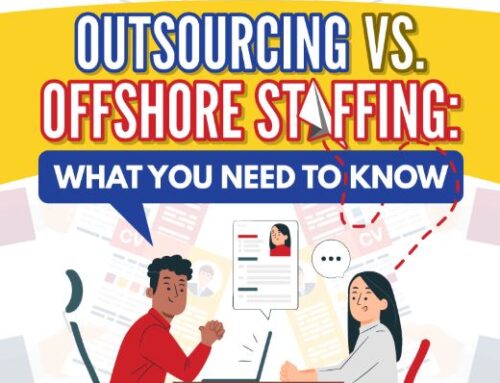Offshoring in 2024 and beyond is no longer an all-or-nothing choice. Currently, companies have various options on how they can offshore their operations, whether it be the operating model they follow or the technology they use.
However, as advantageous as it is having an offshore staff, it still requires smart, strategic planning. There are some functions within an organization’s operation that probably shouldn’t be offshored. Consequently, those functions being considered for relocation overseas should be evaluated to determine if the benefits they’ll yield will outweigh any potential risks.
Assessing Operations to Offshore
No business decision is 100% free of potential downside, so the first step in minimizing offshoring risks is planning your strategy. A good place to start is carefully considering which operations should be offshored. Here are some time-tested tips on how to proceed:
1. Value Hierarchy: Identifying Core & Non-Core Functions
Companies can employ a value hierarchy to identify the strategic value of each process. In the corporate context, value hierarchy refers to prioritizing roles and responsibilities based on the organization’s core values.
In a value hierarchy, as an operational function moves up the ranking, it becomes increasingly important to the company’s overall strategy. Based on the results of the value hierarchy assessment, the organization can classify tasks as core or non-core functions.
Core functions are those critical to the company’s identity; they are aligned with the organization’s primary mission and create a competitive advantage by significantly contributing to its success. These can include:
● Product Development
● Marketing
● Sales
Ideally, core operations should remain onshore to maintain close control over them.
In contrast, non-core functions are supportive tasks that, while necessary for operations, do not directly impact the company’s core competencies. These activities make the best candidates for offshoring, and may include the following:
● Accounting
● Finance
● IT Support
● Customer Service
2. Conduct a Cost-Benefit Analysis
Identifying your non-core functions does not necessarily mean the company will benefit by offshoring these tasks. Companies should perform a cost-benefit analysis of their non-core functions in order to evaluate potential savings from offshoring them. This analysis should consider both direct costs (e.g., labor rates in offshore locations) and indirect costs (e.g., potential impacts on quality or communication barriers).
For example, companies that seek offshore staff from the Philippines can save up to 58% on corporate costs. These significant savings can come from:
- lower labor costs
- reduced operational expenses
- increased efficiency
However, the company would have to adjust for, and accommodate the risks of:
- communication barriers
- cultural differences
- time zone gaps.
Conducting this evaluation will help determine whether these benefits outweigh the costs and any potential risks.
3. Perform a Risk Assessment
Suppose you’ve decided to hire virtual assistants from the Philippines; you must also be ready to address the inherent risks that entails. Conduct a comprehensive risk assessment that considers:
- data security
- quality control
- any other critical challenges
Through this assessment, companies can determine what measures are needed to safeguard sensitive information and establish clear communication channels to supervise offshore staff.
Performing a risk assessment on the offshore location can also provide visibility into the level of cultural compatibility that your onshore team can expect with their colleagues overseas. Understanding the geopolitical landscape is another crucial consideration when selecting an offshore location because the offshore staff’s environment can affect their work and, ultimately, your company.
Get Offshoring Right with EVES
Offshoring is a significant investment, so companies must make smart decisions to align their strategy with their organizational goals. For firms eyeing Filipino talent with globally competitive skills, partnering with a reputable offshore company in the Philippines can ease the recruitment process.
Elite Virtual Employment Solutions (EVES) can connect you with highly qualified Filipino talent who can handle your staffing needs – from IT to accounting to tax management. With EVES, you can achieve a greater competitive advantage while diminishing recruitment fatigue and offshoring risks.
Contact us at info@evesolutions.net to staff up for your non-core functions so you can focus on what you do best— running the company.










Leave A Comment
You must be logged in to post a comment.